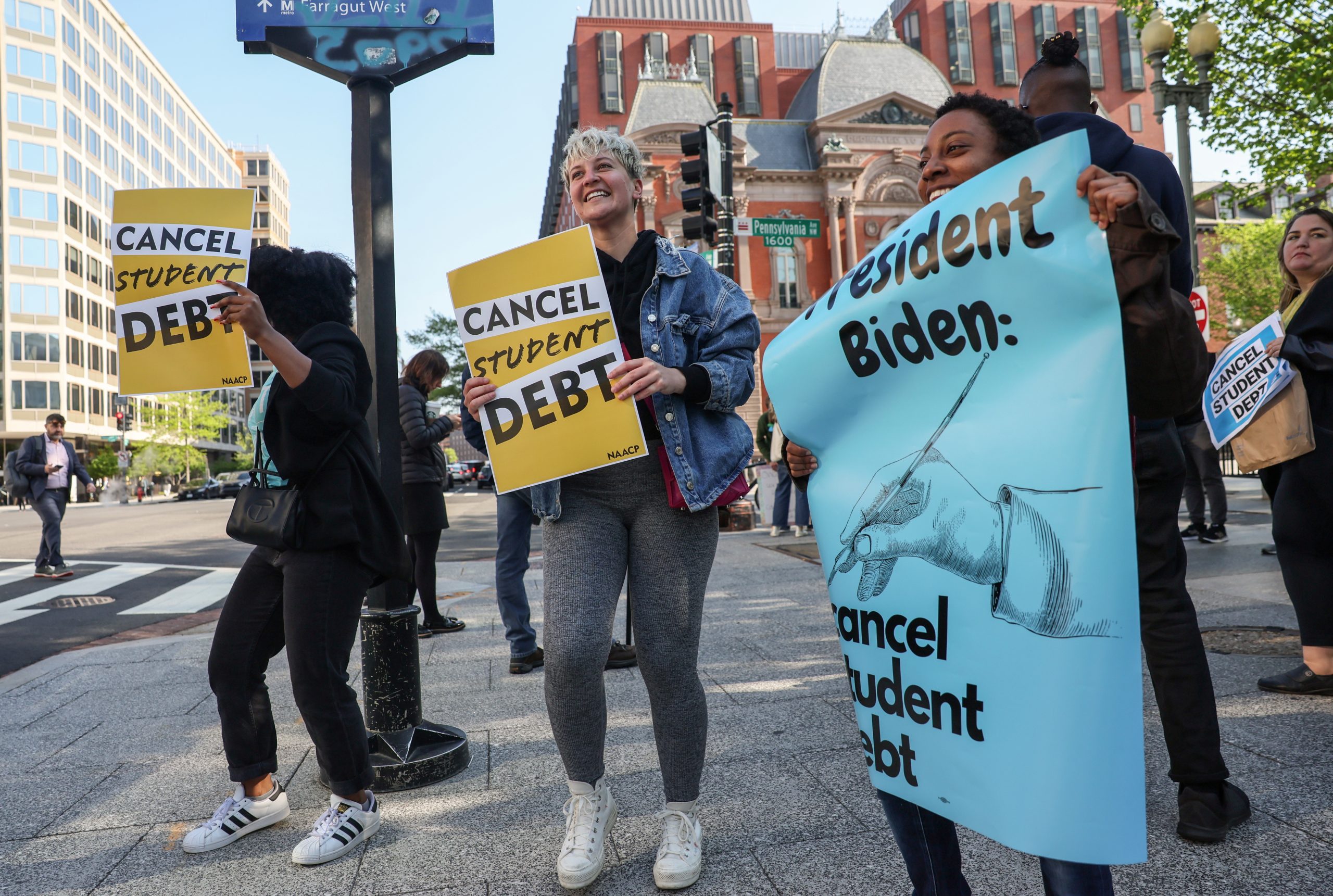
Willie R. Tubbs, FISM News
[elfsight_social_share_buttons id=”1″]
Students hoping to have up to $20,000 in federal student loan debt forgiven might have to wait longer than expected to see their debt total drop following a new filing with the Supreme Court on Wednesday.
The Wisconsin Institute for Law and Liberty (WILL), a conservative advocacy and legal services group, asked the Supreme Court to pause President Joe Biden’s student debt forgiveness program until a case the group has brought on behalf of the Brown County Taxpayers Association (BCTA) is adjudicated by an appellate court. The organization claims in its petition that the White House has overstepped “specific constitutional limitations” by unilaterally spending massive amounts of taxpayers’ dollars without going through Congress.
In a petition for an emergency writ of injunction submitted to Justice Amy Coney Barrett, who presides over the Seventh Circuit, WILL argued the court should intercede to prevent Biden from spending money on a program a lower court might yet strike down.
As previously reported by FISM, the federal government launched the beta site for processing loan requests earlier this week, and relief could feasibly be administered as early as next week.
“As soon as Sunday, October 23, 2022, the Biden Administration will start automatically [canceling] student-loan debts owed by tens of millions of borrowers,” the petition reads. “The blow to the United States Treasury and taxpayers will be staggering—perhaps costing more than one trillion dollars. If this program goes forward as planned on Sunday, then the President will unilaterally spend roughly 4% of the nation’s Gross Domestic Product.”
The case in question was originally brought before a federal judge in Wisconsin but, early this month, a judge ruled the taxpayer organization lacked the standing to challenge the Biden program.
WILL has since appealed this ruling and, should it be turned away at that level, could yet appeal to the high court for relief.
“What Constitutional power does Biden have to take John Q. Public’s money and pay Jane Q. Public’s school loans?” BCTA president Rich Heidel said in a statement. “Why not her mortgage, why not her car loan? How did the college-educated caste become the lucky ones? When and how does this stop? This nonsense not only defies the US Constitution – it defies common sense! And, if President Biden is doing this under the auspices of the federal government, what redress does John Q. Public have other than to take the fight to the federal judiciary?”
The White House and Biden have not responded to the latest development. The president’s most recent comment was a blanket endorsement of his plan.
“In total, more than 40 million Americans can stand to benefit from student debt relief,” Biden tweeted Tuesday. “About 90% of that relief is going to go to people making less than $75,000 a year. Let me be clear: Not a dime will go to those in the top 5% income bracket. Period.”
While there are other legal efforts to block student debt relief, the WILL-led suit is thus far the only case that has resulted in a petition of any sort to the Supreme Court.
“It is critical that the U.S. Supreme Court weighs in on the President’s unconstitutional student loan relief plan before Sunday, when the loan forgiveness could start,” WILL president general counsel Rick Esenberg said. “WILL is proud to represent American taxpayers, and to bring the first claim to be submitted to SCOTUS.”
The Supreme Court is likely to have no choice but to make an ultimate ruling on the programs.
Republicans have taken numerous steps to slow, stop, or modify student loan forgiveness – among them proposing a law that would pass the expense of loan forgiveness onto colleges and universities.
As such a law is all but guaranteed to fail – it is unlikely that Biden would ever sign it or that Republicans will achieve veto-busting power in the midterm – the more logical path for conservatives will be the courts. And conservatives of all stripes are gearing up for court battles.
Beyond the WILL lawsuit, the states of Arkansas, Iowa, Kansas, Missouri, Nebraska, and South Carolina have also joined forces to sue over the program. That case is currently being deliberated in a Missouri federal court.
Additionally, the CATO Institute, a libertarian think tank, is suing the Biden administration in Kansas.
Regardless of the ruling at the lower and appellate levels, it is a near certainty that the losing party will eventually appeal to the Supreme Court. Absent a definitive Supreme Court ruling, even more cases could yet be brought.
Federal student loan repayment has been paused since the onset of COVID-19, but this pause is scheduled to end in January.
